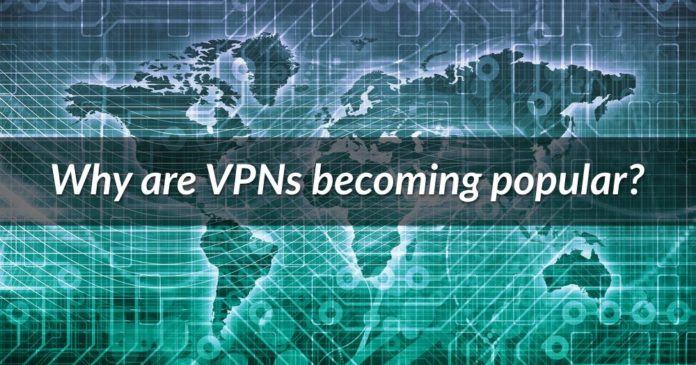
Not long ago, VPNs were exclusively used by big businesses with the technology helping them seamlessly and cost-effectively connect different, far-off branches of their business. Today, the situation is very different and the increasing number of individual users are running a VPN app on their computers, as well as other devices like smartphones and tablets.
In fact, a small study by Wombat has found that 65% of tech users in the U.S. reported that they now use a VPN, while in the UK – 44% of respondents answered the same.
In this article, we are exploring a few reasons behind this seemingly unstoppable trend.
1. Privacy concerns
All of us knew that internet giants were collecting all sorts of data on our web whereabouts, but the situation went really out of control in early 2018 when it was revealed that Cambridge Analytica had harvested the personal data of millions of people’s Facebook profiles without their consent and used it for political advertising purposes. The so-called Facebook-Cambridge Analytica scandal was described as a watershed moment in the public understanding of personal data and precipitated a massive fall in Facebook’s stock price and calls for tighter regulation of tech companies’ use of personal data.
This also prompted many people all around the world to take their privacy seriously. And VPN was (and still is) the right tool for the job, letting users browse the web anonymously.
2. Security
In addition to protecting the user’s privacy, modern VPN apps also include anti-malware features that make accessing internet services in general, and browsing the web in particular, more secure.
A VPN service routes traffic through its own servers and any potentially malicious code gets pruned in the process, delivering only the safe web pages to the end user. Also, because VPNs encrypt all data, it is impossible for third parties to spy on any individual’s traffic. This is especially important for people often connecting to public Wi-Fi hotspots or for those traveling the world with their laptop. (Related: 5 Security Tips for Digital Nomads)
3. Too many ads
You may have noticed that some websites have just too many ads. And while I personally have nothing against ads — after all, they help the website owner monetize its website — I do think that sometimes it’s too much.
Some VPNs can also help you with this, with some services delivering an ad-free experience to its users. The process is similar to clearing web pages of malicious code and at the end, you get a page with little to no ads.
Again, while this gets you web pages that are easier to read, bear in mind this feature also makes it harder for authors and website owners to make a living from their work.
4. Censorship
Online freedom has been declining all across the globe. In countries such as Venezuela, Egypt, Iran, UAE, Saudi Arabia and China — it is getting increasingly difficult to know what’s going on. All television and print press is state-run and opposition news is taken down.
Heck, even democratic countries like Australia, USA, France, and others have passed controversial laws restricting internet freedom.
A VPN app can help users in high-censorship countries get to the real news by bypassing all sorts of limitations that their government and ISP have thrown at them.
Arguably, the situation is most complicated in China where the government has put in serious effort to not only block foreign news websites, but also such services as YouTube, Twitter and Facebook. Therefore, we have a special list of VPNs that work in the world’s most populous country.
5. Content distribution rights
You may think that just because you paid for Netflix, you can watch it from anywhere. That’s not necessarily true, specifically for content that Netflix licenses from third parties. They are buying country-specific licenses and some are not available in all countries around the world, making Netflix feel different in different countries.
With a VPN app, you can always “feel at home” by selecting a server in the country where you live. Heck, since Netflix — and other video streaming services for that matter — have the largest catalog for U.S. users, many folks select a US-based server before signing-up for the service. And later, just before starting the stream, they again connect to the same (US-based) server to get access to the widest possible catalog of movies and TV shows.
…
The question for you is – do you have a VPN app running on your computer? If not – now’s the time to change that, go here to find a VPN that is perfect for you.
